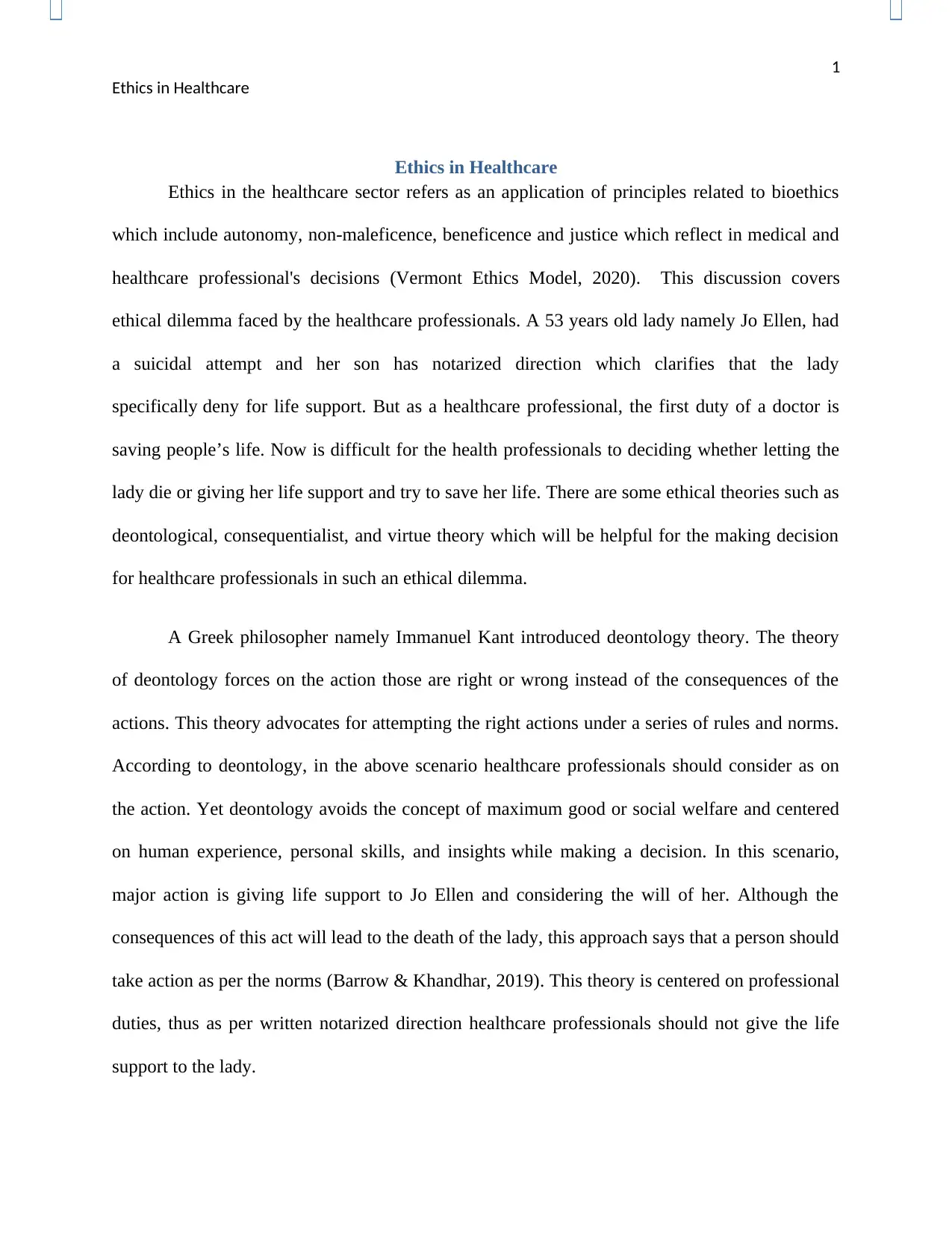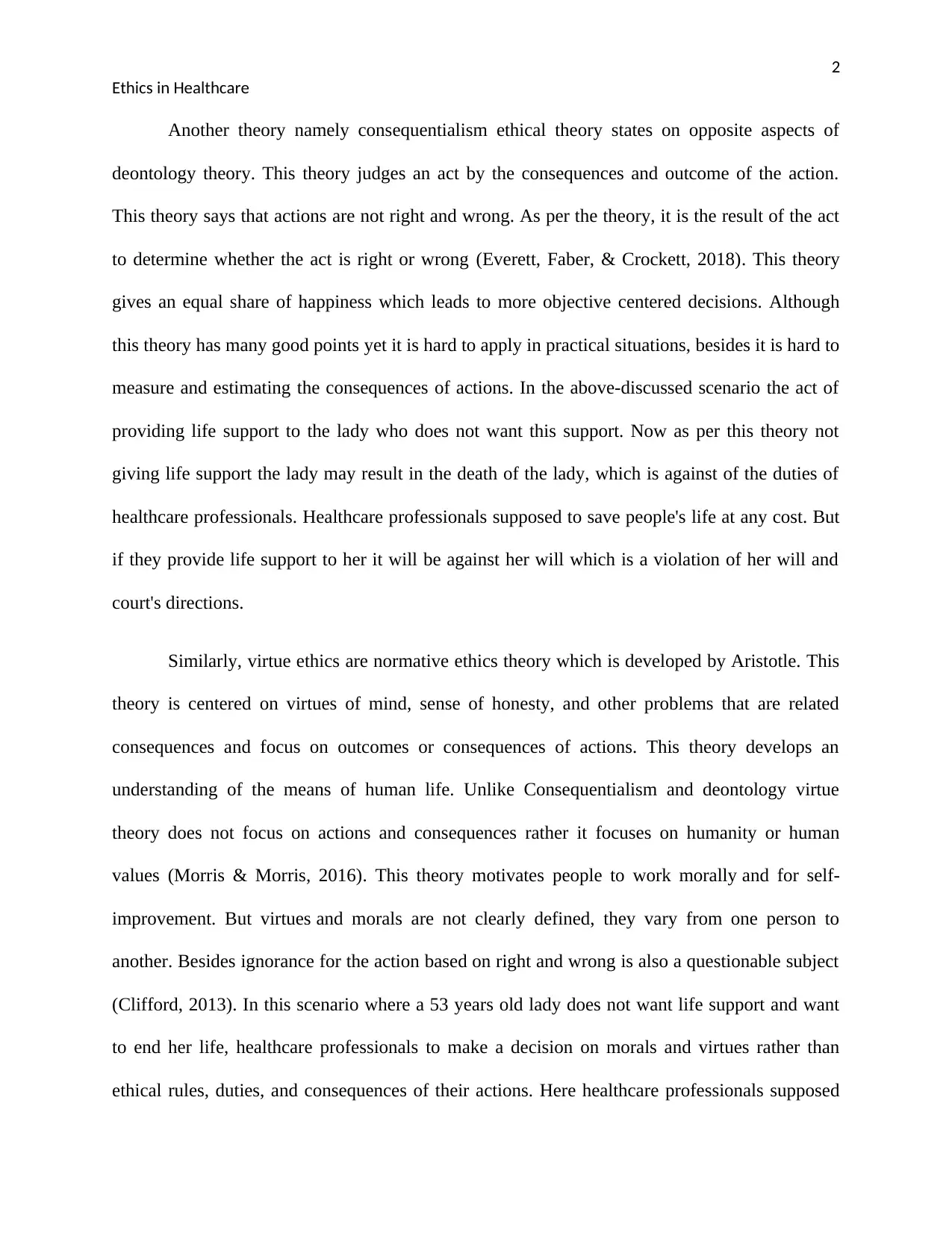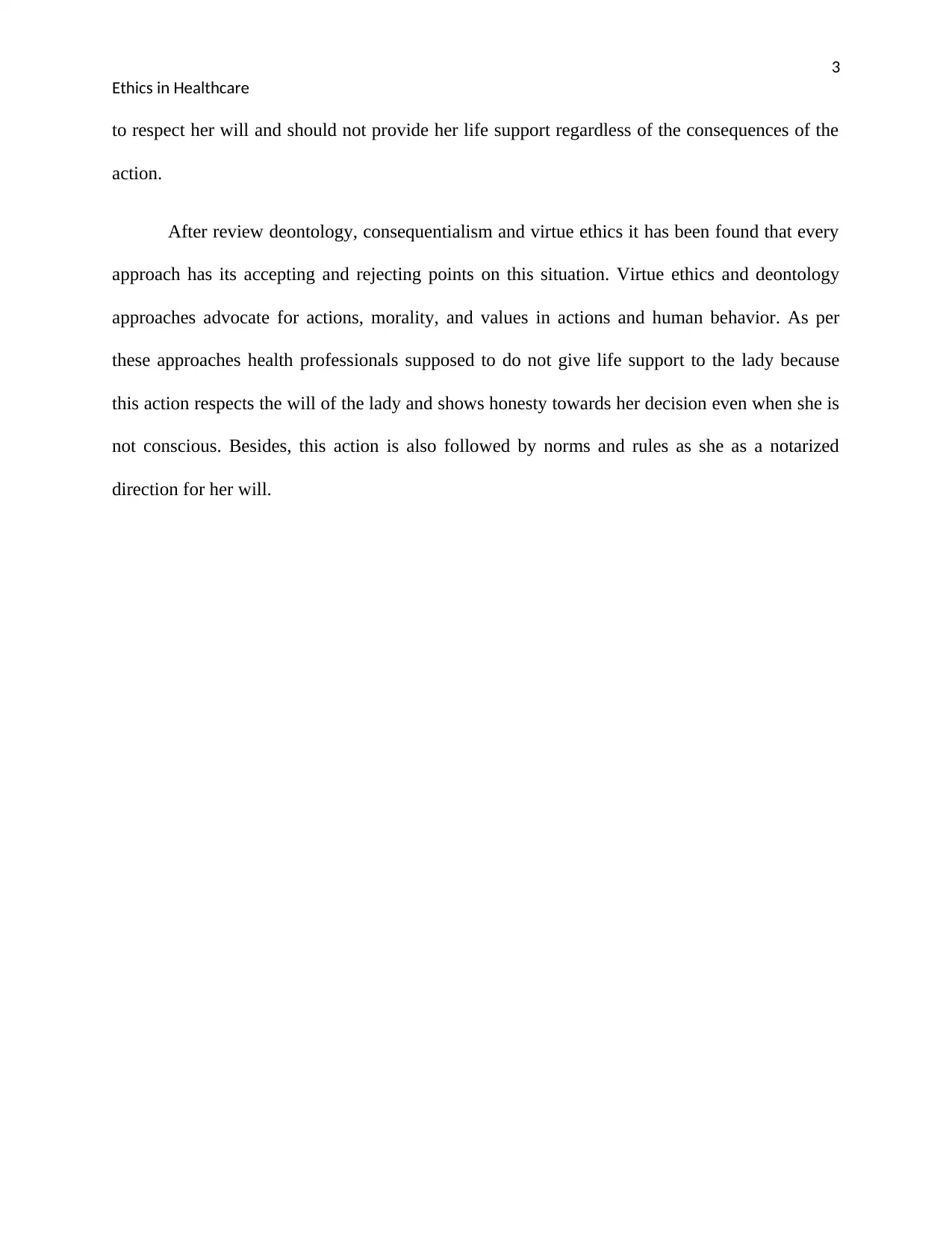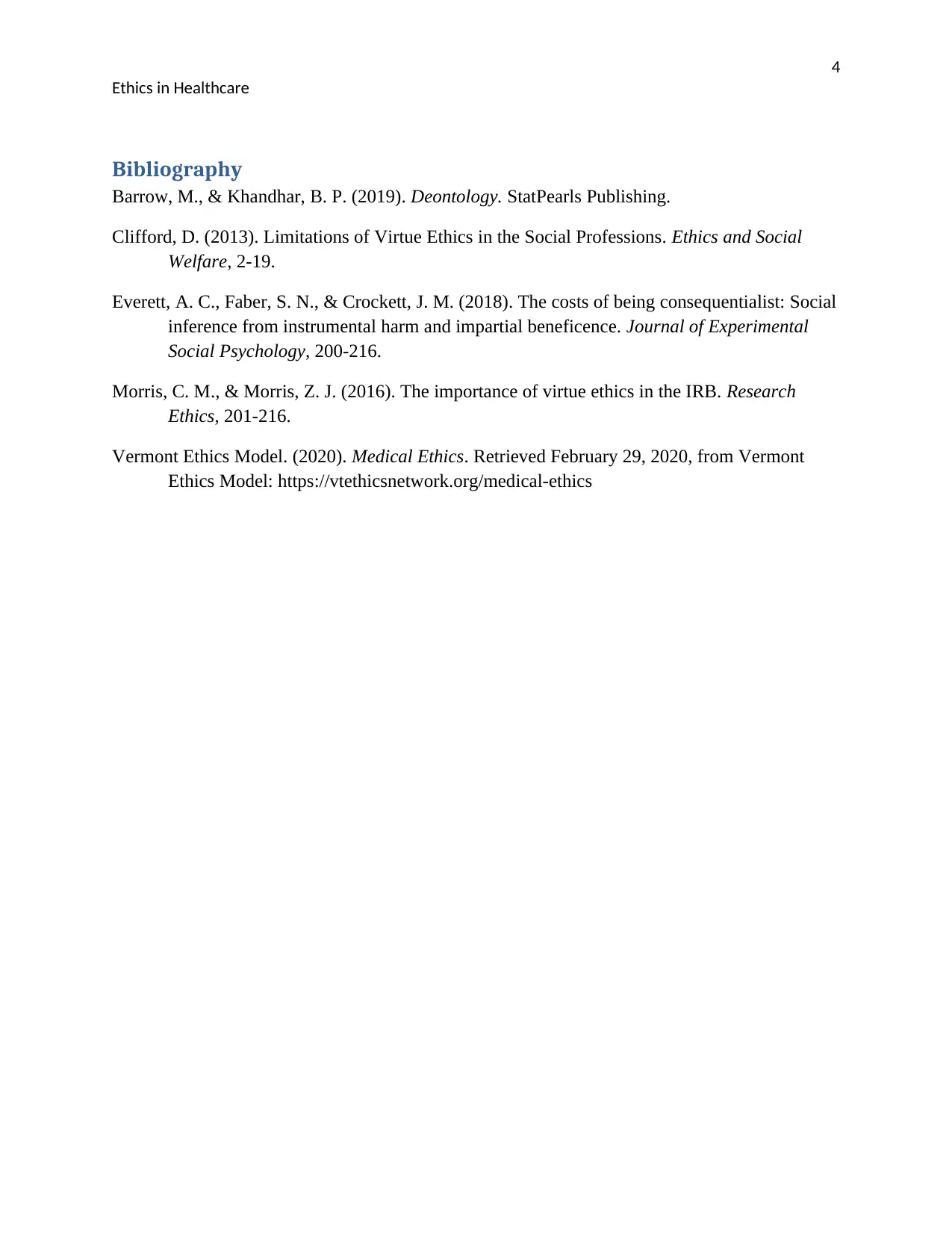Critical Care Ethics: Analyzing JoEllen's Case with Ethical Theories
VerifiedAdded on 2022/08/13
|5
|990
|34
Essay
AI Summary
This essay analyzes an ethical dilemma in healthcare, specifically a case involving a 53-year-old woman, JoEllen, who attempts suicide and has a notarized advance directive refusing life support. The essay applies three major ethical theories—deontology, consequentialism, and virtue ethics—to this scenario. Deontology, emphasizing adherence to rules and duties, is contrasted with consequentialism, which focuses on the outcomes of actions. Virtue ethics, which prioritizes moral character and values, is also examined. The essay discusses the advantages and disadvantages of each theory in the context of JoEllen's case, considering the conflict between the healthcare professionals' duty to preserve life and the patient's expressed wishes. The analysis explores how each ethical framework would guide decision-making, ultimately aiming to justify a stance on the most ethical course of action in this complex situation. The essay concludes by weighing the perspectives of each theory and highlighting the importance of respecting patient autonomy, even when it conflicts with the instinct to save a life.
1 out of 5











![[object Object]](/_next/static/media/star-bottom.7253800d.svg)